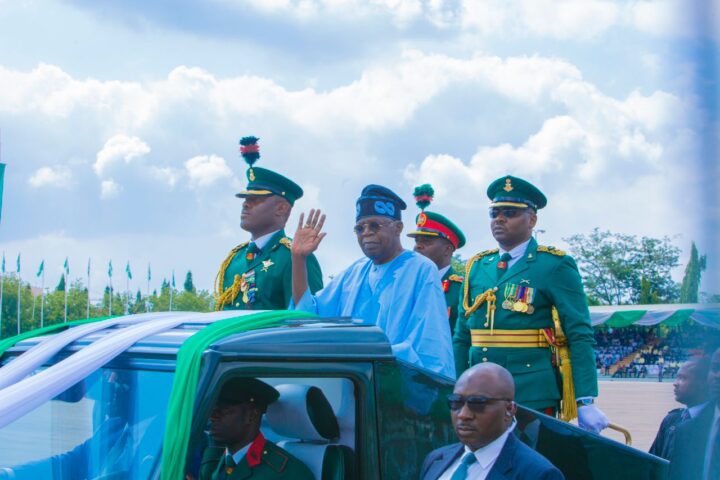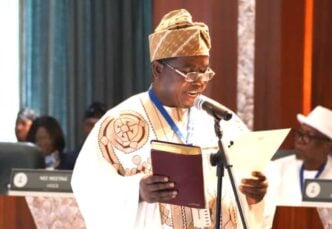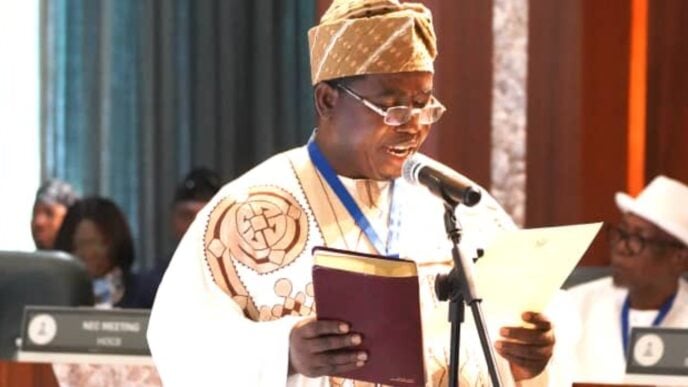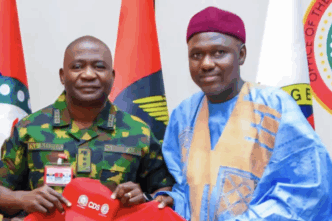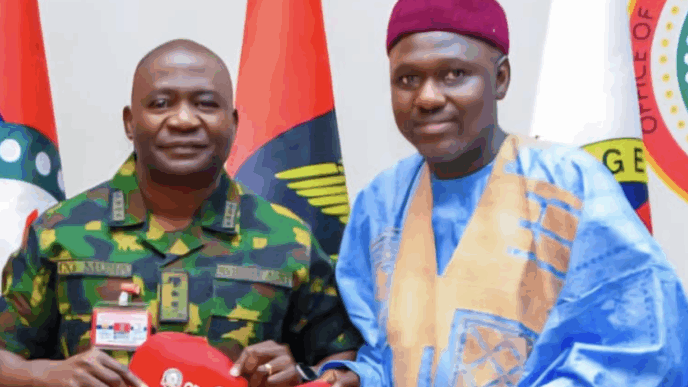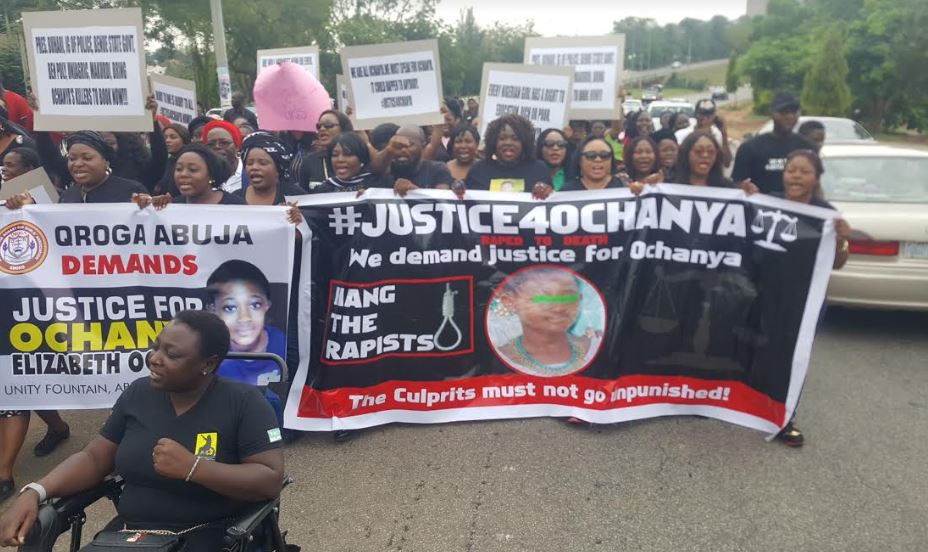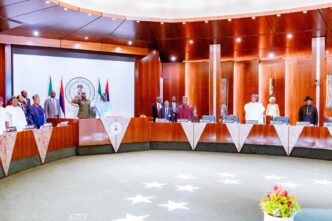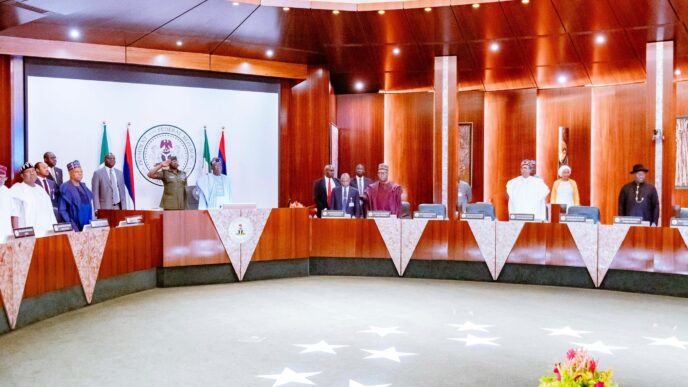President Bola Tinubu at the Democracy Day celebration in 2024
BY NNAA KALU NTO
When recent unconfirmed rumours of a failed coup attempt swept across Nigeria, something deeply troubling surfaced; not just the fear of instability, but the quiet excitement among a few Nigerians who, in their frustration, whispered that perhaps “it wouldn’t be such a bad thing.” That sigh of misplaced longing revealed a dangerous misunderstanding of history. It showed how easily hardship can make people forget the heavy boots of tyranny, how desperation can distort memory until the sound of marching soldiers begins to seem like music. This is a must-read for Nigerians born after 1999, who never experienced the suffocating silence and fear that came with the gun’s command.
There’s a saying in parts of Africa that “no matter how dark the night, the sun will still rise.” That wisdom encapsulates the enduring truth about democracy, for no matter how messy, disappointing, or even corrupt it may appear, it remains the surest path to freedom, accountability, and human dignity. Yet, in moments of national frustration, when the cost of living skyrockets and politicians appear indifferent, some Nigerians begin to romanticise the days of the military, claiming that “things were better under the soldiers.” That nostalgia is understandable, but dangerously misplaced.
Let’s be clear: even the worst civilian administration, with all its flaws, is infinitely better than the most efficient military dictatorship. Because while democracy gives you the right to complain, protest, and vote for change, a military government gives you silence, and that silence often comes at gunpoint.
Advertisement
The Seductive Lie of “Order and Discipline”
The defenders of military rule often point to “discipline” and “decisiveness.” They speak glowingly of how “things worked” under certain generals, of how roads were built, indiscipline was punished, and corruption supposedly controlled. But this argument ignores the heavy cost of that so-called discipline: the brutal suppression of dissent, censorship of the press, political detentions, and the stifling of human creativity.
Take Nigeria under General Sani Abacha. Yes, foreign reserves rose and the exchange rate seemed stable, but at what cost? Journalists were jailed, opposition voices silenced, and citizens lived in fear. The hanging of Ken Saro-Wiwa and eight other Ogoni activists in 1995 was not an act of leadership; it was a national scar that still burns. Stability achieved by fear is not stability; it is paralysis.
Advertisement
Under General Buhari’s 1983–1985 regime, the so-called “War Against Indiscipline” turned into a war against civil liberties. People were flogged in public, newspapers were shut down, and civilians were tried by military tribunals. The irony is that the very government that claimed to fight corruption was itself not accountable to anyone. There were no audits, no legislature, and no independent judiciary to check its excesses.
In contrast, a civilian government, no matter how corrupt, still faces scrutiny from a free press, opposition parties, civil society, and, ultimately, the people’s vote.
Democracy’s Painful but Precious Process
Democracy is not a miracle cure. It is messy, noisy, and frustrating. Politicians bicker, elections are flawed, and sometimes corruption thrives. But it is through that messy process that nations mature.
Advertisement
Since 1999, Nigeria’s Fourth Republic has not been perfect, but it has allowed the country to breathe, innovate, and grow. We have seen five peaceful transitions of power. This was something that once seemed impossible. We have a press that exposes scandals daily without fear of midnight arrests. We have activists, comedians, and ordinary citizens criticising the president on social media; a freedom unthinkable under the military.
Under civilian rule, Nigerians now enjoy the ability to organise movements like #EndSARS, which, despite its painful aftermath, forced a national conversation on police brutality. Could such a protest have happened under Abacha or any military dictator without the possibility of mass executions? Absolutely not.
Democracy gives citizens the right to make mistakes and to correct them. Military regimes make mistakes too, but their errors are carved in stone, often backed by bullets.
The Human Cost of Military Rule
Advertisement
Every Nigerian above 40 remembers the culture of fear that defined the military years. Soldiers could beat you for not “standing properly” during the national anthem. I still remember vividly my days as a young student at Federal Government College, Jos. I was only thirteen, in JSS 3, when a clash broke out between our senior students and those from Command Secondary School, just down the same road. What followed was something no child should ever witness. Late one night, soldiers with guns stormed our dormitories, dragging several of us away through a hole in the fence, without the knowledge of our teachers or parents. We were forced to crawl across the busy Zaria Road under the glare of headlights, punished for a dispute many of us knew nothing about. The treatment was harsh, humiliating, and utterly dehumanising. For weeks afterwards, the fear lingered in our minds; the fear of uniforms, of authority without mercy. That night left many of us, myself included, deeply shaken and traumatised for a long time.
Criticising the government was treated like treason. University lecturers and students who spoke against the dictatorship were disappeared or forced into exile.
Advertisement
We lost an entire generation of thinkers and reformers to fear. Ideas that could have transformed Nigeria were smothered because free thought was treated as rebellion.
Under the military, the constitution was replaced by decrees. With one signature, a general could overrule the courts, dissolve elected councils, or seize private property. In 1984, Decree No. 4 made it an offence to publish anything that embarrassed the government, even if it was true. That single decree killed investigative journalism for years.
Advertisement
Compare that to today, when even small-town bloggers can expose local corruption and spark national outrage. The difference is not just political; it is human. It is the difference between fear and freedom.
The Myth of Military Efficiency
Advertisement
The argument that military governments are “more efficient” is a dangerous myth. Yes, soldiers can move fast, but often in the wrong direction.
Consider the Structural Adjustment Program (SAP) of the Babangida era, a policy imposed without consultation that devastated the naira, wiped out the middle class, and deepened poverty. Or consider how, under General Abacha, billions of dollars in public funds were looted and hidden in foreign accounts – money still being repatriated decades later.
When there is no parliament, no open debate, and no accountability, even the best intentions can destroy lives. Civilian governments may be slow and frustrating, but that slowness is often the sound of checks and balances; of consultation, negotiation, and compromise. Those are not weaknesses; they are the heartbeat of democracy.
Democracy’s Unseen Achievements
It is easy to focus on the failures of civilian administrations: corruption, insecurity, unemployment, and forget what democracy has quietly achieved. Since 1999, Nigerians have built one of Africa’s most vibrant entertainment industries, producing global icons in music, film, and literature. This cultural explosion thrives only in an atmosphere of freedom.
Civil society groups, from SERAP to Enough is Enough, BudgIT, now challenge government policies in court and win. The Freedom of Information Act (2011) allows citizens to request public records, a concept unthinkable under military rule. Even flawed elections now see reforms through the courts, as seen in various gubernatorial reversals. These are slow victories, yes, but they are victories built on the foundation of democracy.
Our people say, “Even the hen must scratch the ground before finding the worm.” Progress under democracy takes effort, time, and persistence. But unlike under the military, that effort is not in vain, because it builds institutions, not just individuals.
Lessons from History and Other Nations
Look beyond Nigeria. Countries that escaped military rule and stayed democratic, like Ghana and South Africa, have made steady progress. Ghana’s alternating governments under different civilian presidents have strengthened institutions and attracted investment. South Africa’s post-apartheid democracy, though imperfect, has maintained civil liberties and built a robust legal system.
On the other hand, nations that flirted with military rule, like Sudan and Myanmar, remain trapped in cycles of violence and instability. Soldiers may promise order, but they often deliver repression. Once you invite them into politics, they never truly leave.
Democracy: The People’s Mirror
Democracy mirrors society, for it reflects both our virtues and our vices. The corruption we see in politics is not born in parliament; it begins in the culture that tolerates it. But democracy gives us the space to correct ourselves. It gives a teacher the right to organise a union, a journalist the courage to expose wrongdoing, and a citizen the power to demand justice.
It is a system where, for all its failings, tomorrow still belongs to the people. No general, however benevolent, can guarantee that. Power that cannot be questioned will always corrupt, and that is the law of human nature.
Choose Freedom, Always
To those who long for the days of the soldiers, I say this: freedom may be slow, but tyranny is final. Military governments do not fix nations; they freeze them. Democracy may stumble, but it learns.
Nigeria’s salvation will not come from uniforms and decrees but from citizens who keep demanding better governance under civilian rule. The cure for a weak democracy is more democracy, more participation, more reform, more vigilance.
Let us not be fooled by nostalgia, selfishness or greed. The era of the gun has passed; the era of the ballot must prevail.
For as another wise African saying reminds us, “However long the rain lasts, the sky will still clear.” Our democracy may be stormy, but it is ours, and my fellow country-people, that makes all the difference.
Nnaa Kalu Nto ([email protected]) is the founder of Analytix and a good governance advocate based in Abuja, Nigeria.
Views expressed by contributors are strictly personal and not of TheCable.
